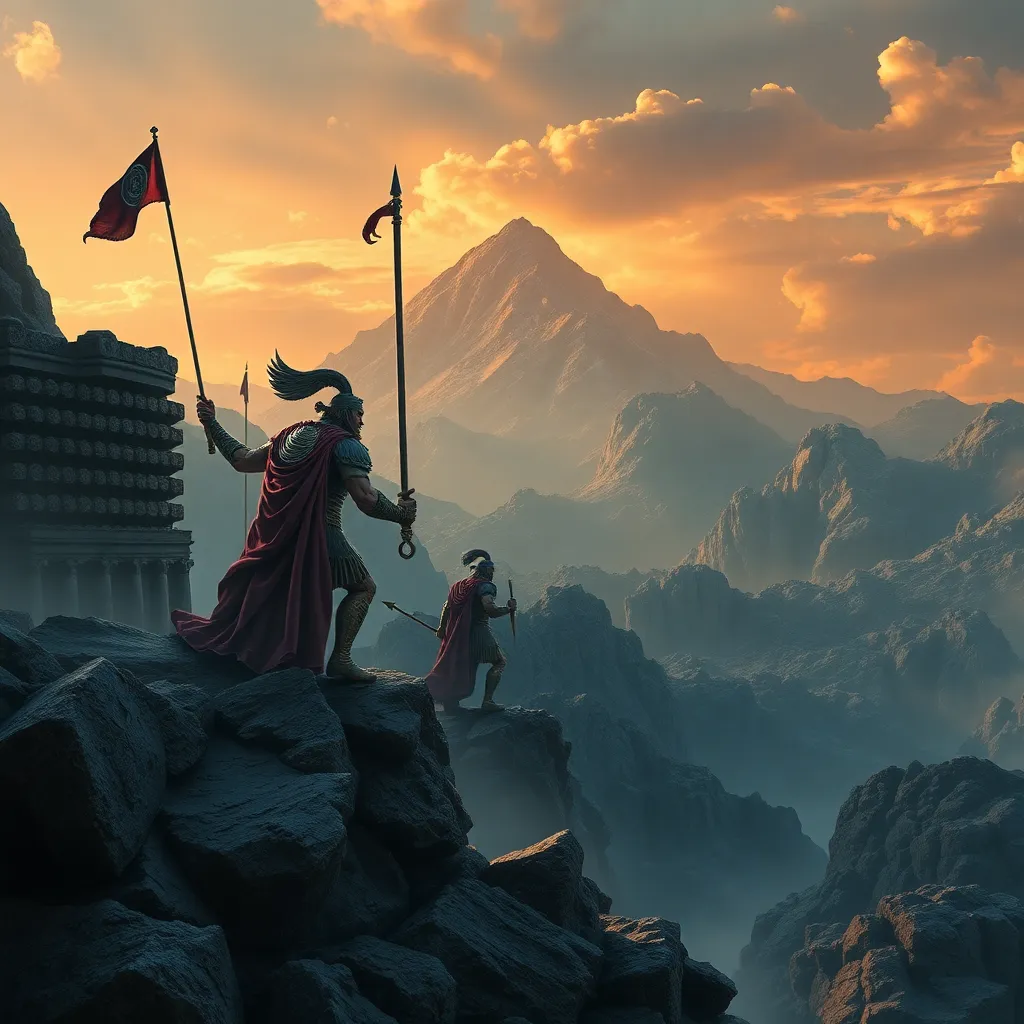The Myths of Ares: War and Conflict on Mount Olympus
I. Introduction
Ares, the Greek god of war, embodies the chaotic and violent aspects of conflict. Unlike other deities associated with war, such as Athena, who represents strategic warfare, Ares symbolizes the brutal and relentless nature of battle. Ares holds a unique place in Greek mythology, often portrayed as a figure of fear and destruction. The purpose of this article is to debunk common myths surrounding Ares, exploring his true nature and significance within the pantheon of Greek gods.
II. The Origins of Ares in Greek Mythology
Ares is the son of Zeus and Hera, born into a powerful lineage that grants him a prominent position among the Olympian gods. His birth is often depicted as a reflection of the tumultuous relationship between his parents, which sets the stage for Ares’ own tumultuous character.
Early representations of Ares in ancient texts portray him as a fierce and often unyielding deity. Unlike other gods, Ares is not celebrated for his wisdom or valor; instead, he is frequently depicted in the throes of battle, reveling in the chaos he creates.
Within the pantheon of Greek gods, Ares plays a significant role, representing the raw and unfiltered aspects of war. He is often accompanied by his companions, Phobos (Fear) and Deimos (Terror), who embody the psychological horrors of conflict.
III. Ares vs. Other Olympian Gods
Ares stands in stark contrast to Athena, the goddess of wisdom and strategic warfare. While Athena advocates for calculated tactics and the protection of the city-state, Ares embodies brute force and the chaos of battle. This fundamental difference highlights the diverse perspectives on war within Greek mythology.
- Ares: Represents chaos, violence, and the thrill of battle.
- Athena: Symbolizes strategy, wisdom, and the pursuit of justice.
Ares’ relationships with other gods are complex, often marked by rivalry and conflict. He is frequently at odds with other deities who seek to promote peace or order, making him a controversial figure among the Olympians. Cultural perceptions of Ares vary, with some viewing him as a necessary evil and others as a purely destructive force.
IV. The Nature of War in Ares’ Mythology
Ares personifies the chaos and violence inherent in war. Unlike other gods who may have noble motivations, Ares revels in the bloodshed and turmoil that accompany conflict. He is often depicted as a relentless warrior, eager to engage in battle without regard for the consequences.
Major myths involving Ares often explore themes of conflict and destruction. For instance:
- The Trojan War: Ares plays a significant role in the epic saga, siding with the Trojans and embodying the chaos of war.
- The story of Ares and Aphrodite: Their love affair is a symbol of the intertwining of love and conflict, showcasing the duality of Ares’ character.
The duality of war is an essential theme in Ares’ mythology, representing both the glory of victory and the devastation of defeat. While Ares is often associated with the former, it is essential to acknowledge the profound consequences of his influence.
V. The Misconception of Ares as a Villain
Ares is frequently portrayed as a villain in classical literature, often depicted as a chaotic force that disrupts the order of life. However, this perception oversimplifies his character and motivations.
When analyzing Ares’ portrayal, it becomes clear that his actions are often influenced by the circumstances surrounding him. His motivations can be seen as a reflection of the nature of war itself — chaotic, unpredictable, and often misunderstood.
The complexity of Ares’ character invites a re-evaluation of his role in mythology. Rather than viewing him solely as a villain, we can consider him an anti-hero, representing the darker aspects of human nature and the inevitable presence of conflict in life.
VI. Ares’ Relationships and Influence
One of the most notable aspects of Ares’ mythology is his love affair with Aphrodite, the goddess of love. This relationship symbolizes the intricate connection between love and war, showcasing how these two forces often coexist within human experience.
Ares’ influence extends to mortal heroes and their stories, as he is often invoked in times of conflict. His presence can be seen in various myths, where he impacts the outcomes of battles and the fates of warriors.
Throughout history, Ares’ legacy has evolved, with interpretations of his character appearing in literature, art, and popular culture. From ancient sculptures to modern films, Ares continues to be a powerful symbol of war and conflict.
VII. The Cultural Impact of Ares Throughout History
Ares has had a profound influence on ancient Greek society, shaping their views on warfare and heroism. He embodies the valor and brutality of combat, reflecting the complexities of human nature.
In art and literature, Ares is depicted in various forms, from fierce warrior statues to poetic representations of his chaotic nature. His image has evolved over time, with modern interpretations reimagining Ares as both a hero and a symbol of the darker aspects of human existence.
- Ancient Art: Statues and pottery illustrating Ares in battle.
- Literature: References to Ares in epic poems and tragedies.
- Contemporary Culture: Depictions of Ares in films, video games, and novels.
VIII. Conclusion
In summary, Ares is a complex figure within Greek mythology, representing the chaotic and violent nature of war. His relationships with other gods, his impact on mortal heroes, and his cultural significance all contribute to our understanding of his character.
The enduring legacy of Ares serves as a reminder of the relevance of conflict in human experience. As we reflect on the myths surrounding Ares, we come to appreciate the intricacies of war and the roles that both love and destruction play in shaping our world.
Ultimately, Ares’ presence on Mount Olympus and in human history highlights the dual nature of conflict; it is both a source of glory and a harbinger of devastation, a theme that remains relevant in our contemporary society.




